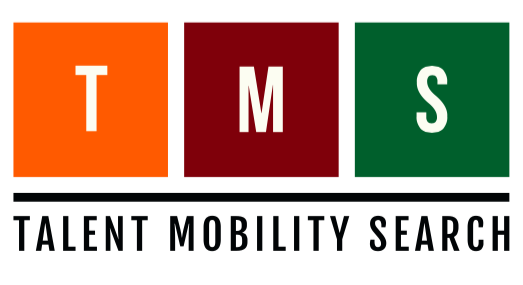
13 May The Future of Talent Mobility – A Post COVID-19 Perspective
There has been much discussion around the many mobility issues currently being faced as we battle our way through this COVID-19 crisis. In this blog we would like to share some perspectives and open a dialogue on what the future of talent mobility might look like and, what as an industry we may want to start thinking about.
There is no doubt that Global Mobility has been front and centre of the COVID-19 pandemic, with the function being an integral partner within the organisation’s crisis response teams. This elevated position within critical business and talent planning offers mobility teams the opportunity to step up and demonstrate their value to the organisation. This requires strong leadership, the ability to collaborate across different internal and external stakeholders, work with ambiguity and resolve unique and complex issues with proactive planning and innovative solutions. Also important is robust data and real time reporting and strong vendor relationships, especially across compliance such as immigration and tax, as well as relocation, assignment management and temp housing.
Unfortunately, this crisis will also expose weaknesses within global mobility functions, especially where data reporting capabilities and the use of such data are poor, fragmented vendor relationships exist or where there is a mismatch in skillsets within the team.
As we come out of this pandemic, mobility leads will be identifying these weaknesses and working with vendors to elevate the program (technology, compliance and relocation services) as well as look to upskill the team, including ensuring regional expertise exists outside of the HQ country – either through a strong outsourced engagement or where necessary by building a tri-regional team.
To add to the challenge, mobility leads will also need to adjust their programs for two periods; post lockdown/pre vaccine and post vaccine. A vaccine could be some time away and we are being told that some programs are ‘stacking’ assignments waiting for the green light.
Key Areas to Consider
We have also identified some other areas where we feel global mobility will be impacted going forward:
- In terms of workforce mobility, remote working could become a mobility option, with a separate policy around it. i.e. when HR or hiring managers are discussing a potential assignment the mobility manager could ask the question: could this role be done remotely and how can we make it work? (i.e. instead of moving the employee to the role, move the role to the employee). Right now, this question is rarely asked. Or maybe companies will change the way they recruit talent – e.g. in the Tech industry, could software engineers work from the home location? Do they need to come to an office or relocate at all? At the moment most requests are dealt with in an ad hoc way and/or agreed to unofficially between the manager and employee.
- If remote working is not preferred/possible, there is likely to be greater opportunity for home working in the host country. The CEO of Barclays recently announced offices may never see the same crowds again’ and he is not alone in this view (Facebook, Google and other tech companies have recently extended work from home until the end of the year). Indeed, prior to the Covid-19 crisis, some employers only had real estate to account for a percentage of the workforces, assuming many (using data) were not in the office at any one time. Secondly companies may consider moving some staff away from the major hubs. Perhaps the days of millions commuting to a major city are limited? This gives rise to three issues mobility leads may need to consider. Firstly, in terms of housing allowances or assistance assignees receive. For example, more junior grades are unlikely to be happy living/sleeping/working in a studio/one bedroom property (especially if that is not what you are used to in the home country). Secondly, if satellite offices in smaller towns become the norm, is there enough supply in terms of schooling/housing etc? Finally, moving to a new location is stressful and can be lonely. If the opportunity to network is reduced, will the assignment be at greater risk of failure? How will we address this?
- Many mobility managers have expressed there could be some reluctance for a while to take an assignment and be away from family and home healthcare (as well as move to countries with inferior or different healthcare – insured system vs state for example). Companies may have to shift their talent planning including more remote team collaboration. For example, consider an assignment that was put on hold due to the crisis. If restrictions start lifting in the summer the likelihood with immigration delays would be a start date in the fall, which could coincide with a much discussed second wave as the typical flu season starts. What are the options? Ask the family to move, with the risk of a repeat of the crisis and further lockdowns within months of relocating; have the employee commute initially until the situation is more secure (or a vaccine exists); have the employee work remote from the home location (not always possible)? Also, are there underlying health issues that present additional risk factors? These are all discussions and scenarios that will need to be considered. This also raises the question of how insurance will be handled in the future. Will people who are more at risk carry higher premiums or even be able to get insurance until a vaccine is found? In general, comprehensive health insurance plans will currently cover treatment for coronavirus just like any other illness, however there may be risks when changing plans and certainly an area that will require attention going forward.
- Duty of care and compliance will come back to the fore – This crisis has highlighted how important it is to track your mobile workforce, including business travellers. More attention to data and having the right technology to track will be essential, as well as communication tools and being able to get reliable information to employees (thus avoiding employee’s reliance on social media). Unfortunately, there have been many situations where employees have been stuck in countries on work trips or holidays and split up from a partner and dependents due to travel restrictions or delays in visas. Employees may also be caught out for tax and social security because they repatriated or returned on a temporary basis, therefore all these situations and compliance aspects need to be tracked in the future with vendors in place to assist. It will be impossible to mitigate 100% of the risk associated with travelling and both employees and employers will have to live with that. However, from a liability perspective, the employer may want a proper legal review of assignment documentation to eliminate risk of litigation.
- Remobilization strategies as we ease out of lockdowns may require HR to identify local talent in location or those with work rights (i.e. nationality or PR status) in host locations to bypass ongoing travel restrictions in place, or leveraging specific visas such as the Van der Elst in Europe.
- Mobility teams will need to work with internal risk to develop sophisticated BCP plans to be able to trigger in the future, in terms of security in place, evacuations, ensuring families are together, business travel management, etc. Ideally policy support should be developed so that cases are dealt with in a consistent and fair way, as opposed to ad-hoc.
- With the expected economic downturn – will companies re-evaluate projects and assignments? Will assignments currently on hold still go-ahead once restrictions are lifted or will companies rethink investments – what mobility alternatives are available? Cost management will become more important and mobility will need to think of new and creative ways to control costs.
- It could take a while before business travel and short term assignments get back up to the level it was before this pandemic, especially as employees and companies have seen that technology can meet the business needs in many cases as opposed to business trips. Remote working and virtual assignments – based in one location and working solely for the benefit of an entity in another location/country could become more common – what is the compliance framework to manage this? Also consider the PE risk. Who is the economic employer and controls the performance and management of the employee and who bears the cost? However, it is also important to consider that industries and leaders will view this differently. Although there will be change, the value of face to face human interaction is still essential in many people’s minds and so many great ideas and opportunities come from those random unplanned discussions at the water cooler or over lunch. Suzanne Moore summed it up beautifully in her opinion piece on work life balance in The Guardian on May 4, 2020: ‘serendipity is the mother of creation’!
- In some industries, especially involving larger long terms projects such as infrastructure and engineering, mobility operations will likely return to normal as soon as the restrictions are lifted. However, mobility managers and team members will need to focus more on new skills as we move forward. The ‘reluctant assignee’ and their family may require much more empathy than before and the manager may need coaching to assist with this empathy. Assignees are much more likely to require detailed information about medical systems and insurance. Mobility managers and suppliers will need to further educate themselves to ensure they can answer such questions.
- Finally, although there may be fewer assignments, the ones which do go ahead may be more business critical and expensive, which will contradict the pressure to reduce costs. Rather than trying to reduce costs and limit exceptions, mobility leads will need to be able to ensure managers do not cut corners on protecting the assignee and family.
Global mobility has long wanted to be regarded as a strategic partner and now has the opportunity to really step up as a function and use this time to prepare to get back to business when economies start opening up. The best teams, leaders and businesses will be those that are wiring for the new normal and not dwelling on what they came from, with the need to be nimble, flexible and supportive to cater for future surprises and disruptions.
We would welcome a dialogue with you on the perspectives raised and invite your comments below.
TMS is a boutique search and consulting firm, assisting organisations with their business and talent mobility strategy and the sourcing and placing of senior talent within the global mobility industry, both on the client and provider side. To discuss further please contact sean@talentmobilitysearch.com



No Comments